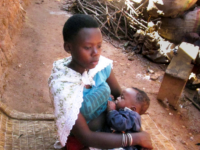By Ebuka Onyeji and Nike Adebowale
Over dependence on foreign countries for vaccines, poor research capacity, inadequate funding and lack of accountability are some key reasons why advancement in local vaccine production in Nigeria has remained slow, health experts said.
At a symposium Wednesday in Abuja to mark the African Vaccine Week (AVW), many stakeholders in the health sector gathered to review the progress of immunization in Nigeria. They agreed that the Covid-19 pandemic exposed several inefficiencies in vaccine production and distribution in Africa.
The symposium was organized by the West African Institute of Public Health (WAIPH) with the support of the Partnership for Advocacy in Child and Family Health @scale (PACFaH@Scale/PAS), among other partners.
Health experts, government officials, civil society organizations and international partners attended the one-day high-level event with the theme: “Equitable Vaccines Access: Resilient Communities.”
AVW is an annual event celebrated during the last week of April with the aim of promoting the use of vaccines to protect Africans from preventable diseases.
The emergence of the Covid-19 pandemic highlighted the importance of local vaccine production especially in developing countries like Nigeria which must depend on global arrangements such as COVAX that often prioritizes wealthier countries.
Meanwhile, more than two years after the pandemic hit Nigeria, the country’s local vaccine production plan, Biovaccine, is yet to take off despite the government’s commitment of N10 billion ($26,315,789) to set up a vaccine production company. The situation predicated on previous attempts to revamp local vaccination plans in the country which failed.
Attempts to revamp the Federal Vaccine Production Laboratory at Yaba in Lagos State which was locally producing vaccines in Nigeria until it was shut down in 1991 has not yielded positive results promoting the continued reliance on imported vaccination and donations.
Speaking at the symposium, a Professor of Virology and former President of the Nigeria Academy of Science, Oyewale Tomori, said local vaccine production in Nigeria will remain a tall dream if some key issues hindering the efforts are not addressed.
He made a presentation on equitable vaccine access, resilient communities, and addressed the sub-themes that relate to global strategies for leaving no one behind, decolonizing vaccine production and strengthening the vaccine learning ecosystem.
Tomori who is also the Chairman of Bio-vaccine Board, the company commissioned by the federal government for local production of vaccines in Nigeria, decried Nigeria’s poor research capacity.
He said for Africa to witness growth in vaccine production, leaders must adopt the knowledge and capacity of young persons for physical development in the country.
The professor said countries producing vaccines today have invested in research and development for many years. He added that Covid-19 vaccines in use are products of lots of research work.
Professor Tomori said Africa is dangerously lagging in research and development. He described Africa’s over-dependence on foreign countries as dangerous. He said Africans were among the last persons to receive the Covid-19 vaccines “because the suppliers must fulfill the needs of their people before sending some doses out.”
Also speaking, Abdulsalami Nasidi, a pioneer director of National Centre for Disease Control (NCDC), stressed the need for African leaders to act fast in setting up policies and an enabling environment that will ensure equitable vaccine production to meet teeming demands. He said investment must be followed with proper accountability and transparency. He noted that the experience of the defunct Yaba vaccine centre should serve as a big lesson to the Nigerian government.
Francis Ohanyido, the director-general of WAIPH, organizers of the event, said one of the biggest challenges to vaccine distribution in Nigeria is poor health literacy, especially in rural communities. He said the involvement of civil societies is important for Africa to achieve successful local vaccine production and distribution. Mr. Ohanyido also noted that the media has a major role to play in expanding knowledge and awareness of vaccines.




